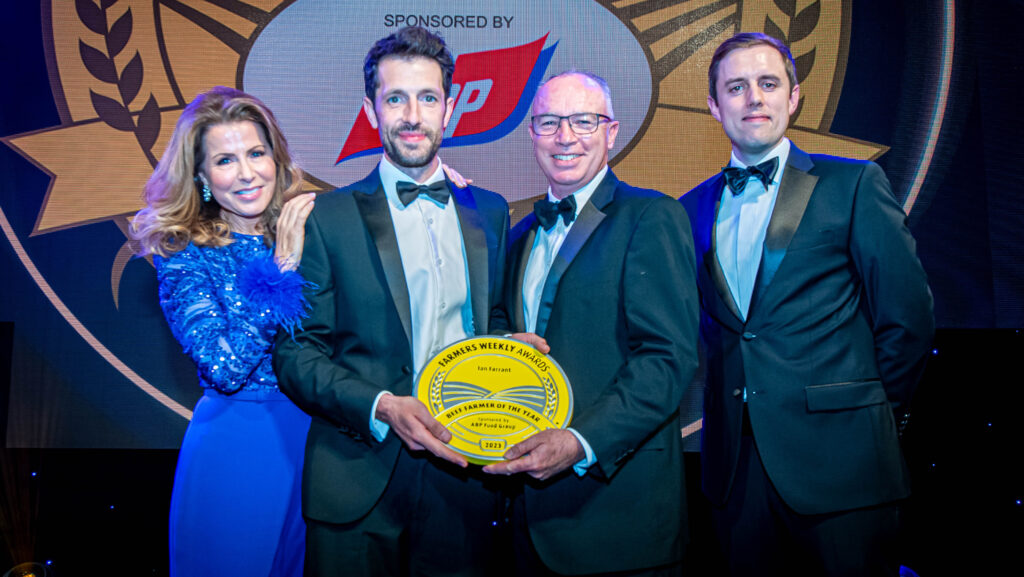Opinion: Farmers’ attitudes to adversity is what makes them winners
 Ian Farrant © Telling Photography
Ian Farrant © Telling Photography In what has been described locally as “the biggest scandal since the horse meat fiasco”, I was given the Beef Farmer of the Year award last year.
Whether it was “clearly a clerical error” or not, no one has come to take it away yet, so I think I may have gotten away with it.
See also: Opinion – colostrum will be key in two-tier calf market
While the Awards night was fantastic, one of the biggest rewards for winning is being asked to help judge the following year. I’ve been able to look through all the applications.
I know it sounds cliché, but the quality of entries has blown me away.
What has really stood out is just how varied our sector is.
From pedigree sucklers to dairy-cross calf-rearers, large-scale fattening sheds down to regeneratively grazed rare breeds, almost every beef producer in the country is a little different.
How we can judge one against another I don’t know, but I guess that’s half the fun.
Contrary to the narrative pumped out by certain media outlets, there are no rainforest-felling, hormone-induced, soya-guzzling feedlots within the entries
Every one has a great story to tell, is full of innovation and rightly proud of the business they have developed.
What united them was the use of home-grown forage and a keen eye on moving their enterprises towards a sustainable, resilient future.
Our sector and industry are changing at breakneck speed.
If you’d openly discussed growing anything herbal a few years ago, you’d probably have been arrested, but the likes of herbal leys, cover crops and carbon footprints are now par for the course.
It’s up to us as an industry to highlight the massive steps we are taking to produce the most sustainable food in the world, and the FW awards are a big part of that.
You never know, at this rate, we might even get George Monbiot writing about something else.
We have to whittle it down to three finalists, and now have the absolute privilege of an in-depth farm walk and discussion with three of the best beef farmers in the country.
While I’m wearing my judge’s hat, deep down I’m out to steal as many ideas as possible to help push my business forward. So I’m thankful that there are two other judges to help keep me in line.
Opening your farm up to others is a nerve-racking process at the best of times, let alone when those people come with the sole purpose of judging it.
Last year, two hours before the judges arrived, 115 Angus yearlings decided to go Awol. It’s actually quite hard to show off your beef herd when you don’t know where they are.
After a mad search, they were found in a nearby garden, which was not the type of adaptive paddock grazing I’d hoped to be discussing.
As we ran them back up the road with some neighbourly help, we had to stop the traffic, which consisted of the three judges!
I felt my fate was sealed before they had stepped out of the car, so I relaxed and just enjoyed showing some friendly faces round the farm.
At the Awards night, when I questioned one of the judges on why they had chosen me after such a disastrous start, he said:
“What makes a great farmer isn’t just managing what they can control, but their attitude in adversity when coping with the things they can’t control.”
After the winter we’ve had, I think that sums British farmers up beautifully.

